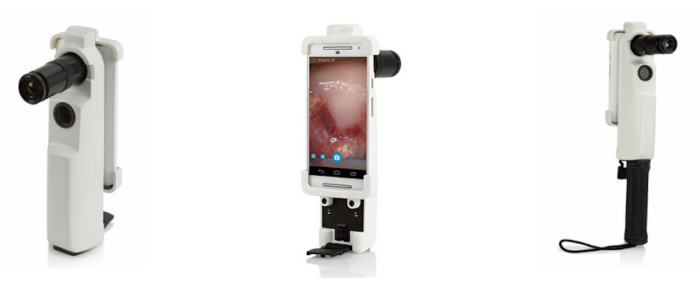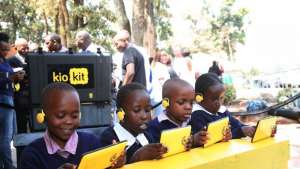
Despite cervical cancer being the most preventable form of female cancer, it remains a major public health concern in developing countries. According to the World Health Organisation (WHO), more than 270 000 people die from cervical cancer every year and 85 per cent of these women live in Sub-Saharan Africa.
Early detection is crucial in the treatment of cervical cancer, but low-income women are more at risk because they don’t have access to the colposcope, a device used for screenings. With this in mind, Israel-based medical company MobileODT has launched a new mobile colposcope that is suited to remote, low-income areas where there are more smartphones than physicians.
The MobileODT cervical cancer screening system is a medical-grade case that allows any smartphone to also perform as a colposcope. The device is equipped with a light source and magnifying lens that gives a phone’s camera lens the capabilities to capture a detailed image of any abnormalities in the cervical tissue. The procedure is less invasive procedure than a Pap smear. It is also better suited to low-income areas because the patients don’t have to wait for Pap smear results to return from the lab.
Once the image (“selfie”) is taken, the nurse can make a diagnosis or capture photos of the patient’s cervix and transmit them securely to a physician for further analysis. The cervical cancer screening system was trialled in Kenya at the 9th Stop Cervical, Breast and Prostate Cancer in Africa Conference.
Traditional colposcopes can cost up to $15 000 but MobileODT’s device costs $1,800. It is already being used in 11 countries, including Kenya, Gambia and Haiti.
Co-founded by Ariel Beery and David Levitz MobileODT is this year’s winner of the 2015 MedTech Innovator competition.







